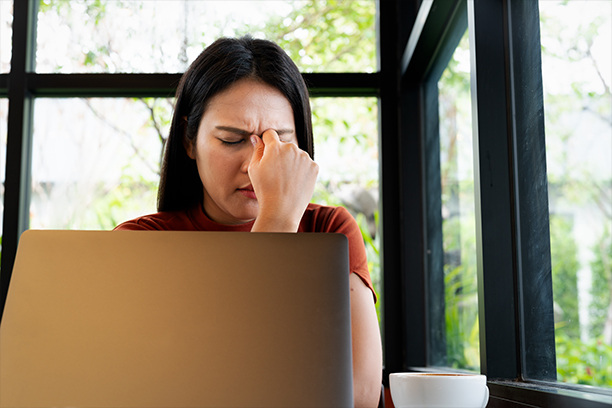- GlassesShop By FrameShop By StyleFeatured













In today’s digital age, screens dominate our daily lives—whether for work, entertainment, or staying connected. With this increased screen time comes growing concerns about blue light and its potential effects on eye health. One popular solution that has emerged is blue light glasses, marketed as a way to reduce eye strain, improve sleep, and protect vision. But the critical question remains: do blue light glasses really work?
Understanding Blue Light: What Is It?
Blue light is a high-energy, short-wavelength light within the visible light spectrum. The most significant natural source of blue light is the sun, but artificial sources—such as LED lights, smartphones, tablets, and computer screens—also emit substantial amounts.
Due to its high energy, many believe that prolonged exposure to artificial blue light may contribute to:
- Digital eye strain (blurred vision, dry eyes, headaches)
- Sleep disruption (by suppressing melatonin, the sleep hormone)
But is blue light truly harmful, or are other factors at play?
The Truth About Digital Eye Strain: Is Blue Light the Real Culprit?
While many people experience discomfort after long screen sessions, research suggests that blue light itself may not be the primary cause. Instead, the following factors play a bigger role:
- Reduced blinking (leading to dry eyes)
- Poor posture (causing neck and shoulder tension)
- Prolonged close-up focus (straining eye muscles)
The American Optometric Association (AOA) states that there is no strong evidence that blue light damages eyes under normal usage conditions. So, if blue light isn’t the main problem, do blue light glasses work at all?
How Blue Light Glasses Claim to Work
Blue light glasses feature special lens coatings designed to filter or block certain blue light wavelengths. The intended benefits include:
1. Reducing eye strain by minimizing harsh blue light exposure.
2. Improving sleep quality by limiting blue light’s impact on melatonin production.
But does science support these claims?
Looking for stylish and affordable blue light glasses? Explore our collection of blue light-blocking eyewear, available in various designs for work, gaming, and nighttime use.
What Does the Research Say? Do Blue Light Glasses Really Work?
Multiple studies have investigated whether do blue light glasses work, with mixed results:
1. Eye Strain Relief? Limited Evidence
- A 2023 AOA report found no conclusive proof that blue light glasses significantly reduce digital eye strain.
- Instead, experts recommend the 20-20-20 rule (every 20 minutes, look 20 feet away for 20 seconds).
2. Sleep Improvement? Possible, But Not Guaranteed
- Blue light at night can disrupt sleep by suppressing melatonin.
- Some users report better sleep with blue light glasses, but results vary.
3. Subjective Benefits
- Some people feel reduced eye fatigue, possibly due to placebo effects or reduced glare.
While do blue light glasses really work for everyone? Not necessarily. But they may help certain individuals, especially those with light sensitivity or sleep issues.
For those with light sensitivity, our amber-tinted blue light glasses provide enhanced filtering for added comfort during screen use.
If Blue Light Glasses Aren’t a Miracle Solution, What Works Better?
Since do blue light glasses work only for some, consider these scientifically backed alternatives:
✅ Follow the 20-20-20 rule (prevents eye strain)
✅ Use artificial tears (combats dry eyes)
✅ Adjust screen brightness & reduce glare
✅ Maintain proper posture & viewing distance
For those prone to migraines or extreme light sensitivity, specialized tinted glasses (not just blue light filters) may be more effective.
Check out our premium anti-glare glasses, designed for professionals who spend long hours in front of screens.
Final Answer: Do Blue Light Glasses Really Work?
After reviewing the evidence, here’s the truth:
l For general eye strain? No strong proof—do blue light glasses work here? Likely minimal.
l For sleep improvement? Possibly, but not guaranteed.
l For light-sensitive users? May provide some relief.
Blue light glasses are not a cure-all, but they can be a helpful supplement alongside better screen habits.
Browse our budget-friendly blue light glasses—an easy way to test if they work for you!
Making an Informed Choice
As an affordable eyewear retailer, we believe in transparency. While do blue light glasses really work is still debated, they are not harmful and may benefit some users.
If you decide to try them:
✔ Pair them with healthy screen habits
✔ Choose a reputable brand with proper filtering
✔ Monitor if they make a difference for you
Discover our best-selling blue light glasses—stylish, comfortable, and available in multiple strengths.
Should You Buy Blue Light Glasses?
So, do blue light glasses work? The answer depends on your needs:
l For most people: Better screen habits matter more.
l For sensitive users: They might help slightly.
While research continues, the best approach is balance. If you experience discomfort, try blue light glasses alongside proven eye care strategies.
Final thought: Do blue light glasses really work? For some, yes—but they’re just one piece of the eye health puzzle.
Explore our collection today and find the right pair for your lifestyle!

